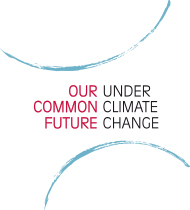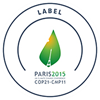Organizers : Water Research Commission - WRC, Institute for Research and Development - IRD, University of KwaZulu-Natal - UKZN, Department of Science and Technology (DST), French Embassy, ESASTAP Plus and Alliance Fran�aise de Durban
Date : from June 11th to June 12th
Location : UNITE Building, Howard College, UKZN, Durban, South Africa
Expected number of participants : 50-100
Nature of participants : Decision and policy-makers, researchers and students
Keywords : Human Capital Development, Water ressources, Wet lands, international cooperation - South Africa
Keynote speakers :
- Dr Albert van Jaarsveld, Vice-Chancellor and Principal: University of KwaZulu-Natal (tbc)
- Elisabeth Barbier, French Ambassador in Pretoria
- Dr Henry Roman, Director: Environmental Services and Technologies, DST
- Dhesigen Naidoo,� CEO, Water Research Commission
- Dr Pierre Lemonde, Attach� for Science & Technology, French Embassy in South Africa
- Prof Thierry Lebel, IRD, Grenoble, France
- Prof Graham Jewitt, University of Kazulu-Natal, Pietermaritzburg, South Africa
- Dr Vincent Chaplot, IRD, Pietermaritzburg, South Africa
- Dr Jean Albergel, IRD/CNRS Representative in South Africa
- Dr Stanley Liphadzi, Water Research Commission
- Stephen Hogan, EU Science Counsellor to the African Union (tbc)
- Mrs Mamohloding Tlhagale, Director: Strategic Partnerships, DST



